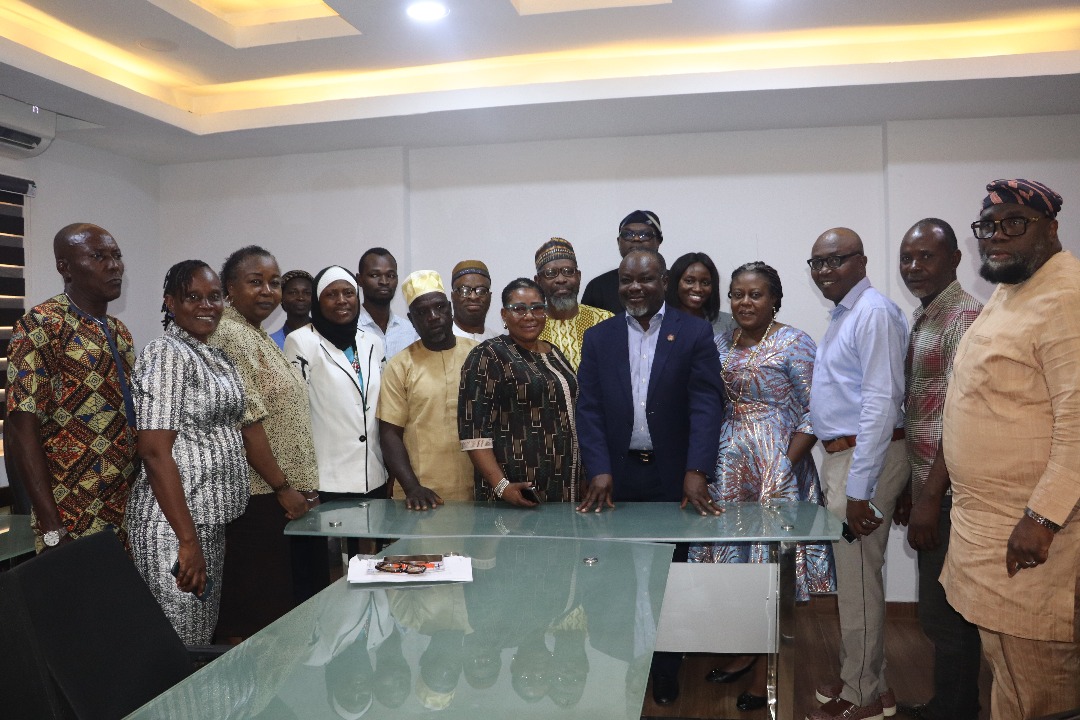- LASAMBUS introduces motorbike and water ambulances as beneficiaries share emotional survival stories
At an emotion charged media engagement session held at the Lagos State Ministry of Health, survivors and first responders gathered to tell stories of life, resilience, and service performed by the Lagos State Ambulance Service (LASAMBUS). The event, organized under the theme “LASAMBUS: Highlighting Impact, Improving and Sustaining Response,” spotlighted LASAMBUS as a critical player in emergency healthcare delivery.
Delivering the keynote speech, Dr. Olusegun Ogboye, Permanent Secretary of the Ministry, traced LASAMBUS’ journey from its humble beginnings in 2001—when it operated just four Peugeot wagons—to today’s robust system of:
- Four operational bases
- 36 ambulances active daily
- 190+ trained personnel
- Mobile ICU units and water ambulances
“This is not just about moving patients; it’s about stabilizing lives en route to definitive care,” Dr. Ogboye stated.
He revealed that in 2024 alone, LASAMBUS responded to over 8,900 emergencies, and had already handled nearly 3,000 cases in 2025 as of mid-year. With a transit mortality rate as low as one death annually, the service’s clinical performance is one of the best in the country.
Expounding further on the steps been taken by the service to overcome key barriers such as traffic gridlocks, poor address details, and crowd interference, Dr Ogboye disclosed that LASAMBUS is rolling out a series of innovations, including;
- 10 new motorcycle ambulances to cut through traffic
- Water ambulances reactivated for riverine communities
- Plans for air ambulance support via private helicopter services
- Enhanced GPS, dispatch, and digital communications systems
- Modular deployment points for quicker coverage
“We are responding to Lagos’ unique topography and traffic with a dynamic emergency model,” Dr. Ogboye explained.
Dr. Ogboye issued a passionate plea for public cooperation, condemning acts of vandalism and crowd interference during emergencies.
“Ambulances are not adversaries—they are lifelines. Give way whether they’re empty or not. Stop vandalizing these vehicles. They are built to save lives,” he said.
He also provided a breakdown of emergency types handled in 2024:
- 60% involved trauma (accidents, falls)
- 25% were medical emergencies (cardiac, seizures)
- 15% included obstetric and public health crises
Mrs. Beatrice Makinde, Director of LASAMBUS, addressed the public perception of delays. “Many delays are not from us, but from traffic, wrong directions, or crowds gathering instead of helping. Every minute counts in emergency care,” she emphasized.
She reaffirmed the agency’s commitment to saving lives despite logistical hurdles.
Perhaps the most stirring moments of the event came from survivors who owe their lives to LASAMBUS:
- Mr. Adebayo Akinola shared how LASAMBUS rescued his uncle after a major road accident in Oshodi. “They gave us world-class care for free,” he said.
- Mrs. Omotayo Oluwakemi Adeyinka, an education director, recounted how a boy hit by her car was saved by LASAMBUS after private hospitals turned him away. “They refused any payment. I was shocked,” she recalled tearfully.
- Mr. Akintayo Moshood, saved after a fainting episode, was so grateful he volunteered to repaint an LASAMBUS ambulance wall. “I just wanted to say thank you,” he said.
- Sulaimon Kabir Olanrewaju, who survived a 2 a.m. asthma attack, recalled: “We called 767. They arrived in five minutes. They saved my life.”
- Morufu Muriana Ademola, a trader from Ibadan, remembered his accident on the Lagos road: “My intestines were out. I was unconscious. I’m not even from Lagos—but they saved me.”
The event concluded with recognition of Governor Babajide Sanwo-Olu’s pivotal support in strengthening the state’s emergency health infrastructure.
“Our Governor’s vision for a safer Lagos makes this possible,” Dr. Ogboye affirmed. “He has given us the resources. Now, we must ensure that no Lagosian in distress is left without care.”
The LASAMBUS media engagement is part of a wider public sensitization campaign to: Enhance public trust in emergency services, promote road courtesy and ambulance access and foster a culture of timely intervention and cooperation.
With motorcycle ambulances ready to weave through Lagos traffic and water ambulances poised to serve riverine communities, LASAMBUS is not just responding to emergencies—it’s rewriting the rules of pre-hospital care in Nigeria’s most populous city.







